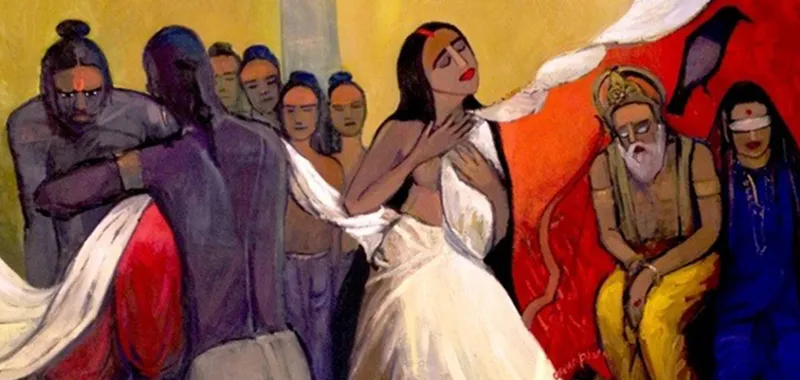Why do men stare at women?
Akeli ladki khuli tijori ki tarah hoti hai (a lone female is like an open safe) and even if she is not alone she is fair game.
Street harassment is a common occurrence. Women have to deal with it on a daily basis. Women who face it would probably compare it to breathing in Delhi a day after Diwali with their lungs choked with smog.
An ActionAid survey conducted in 2016 on street harassment across the globe shows that 79 percent of women living in cities in India, 86 percent in Thailand, 89 percent in Brazil have been subjected to harassment or violence in public, as had 75 percent of women in London.
Till a woman is not hassled on the street she perhaps is unaware of being a woman hinted Cynthia Grant Bowman in her article Street Harassment and the Informal Ghettoization of Women, a decade ago (Harvard Law Review, Vol. 106, January 1993). She wrote, “A woman walks down a city street. A man whom she does not know makes an obscene noise or gesture. She counters with a retort or ignores him and walks on. This is a common enough sequence of events. It happens every day of the year…Superficially, this is a simple, ordinary encounter…But beneath the surface is a complexity of feeling, thought, and intention that, despite two decades of feminist theorising and two millennia of women writing about women, we have just begun to decode. Hidden in this complexity are the personal and political contradictions of women’s life, making the experience of street hassling the quintessential moment of femininity in our culture.”

Enough has been written on the matter, a range of videos have been shot to gauge public reaction to street harassment, or the hassling women face on the streets. Within this large pool, a trio of filmmakers from Mumbai added another shocker.

Aditya Singh, Anvita Sudarshan, and Krishan Khatra took to the streets of Mumbai to understand why men stare at women and their side of the story. Twenty-six-year-old Anvita says, “The idea at first was not so much to confront, as to question. We wanted their side of the story and their opinions. But honestly, we had not expected the kind of opinions that we would eventually get.”
The filmmakers interviewed men who were blatantly staring at the two women ‑ Anvita and Gunjan (the presenter) ‑ in the video they shot and were unapologetic about it. The final cut shows the view of men who thought it was only fair to look at those women. The interviews show all kinds of reactions – from comparing women to a flower that should be touched or to Taj Mahal whose beauty is to be admired showing that women are objects and starting and harassing them is fair game. The video highlights that wearing Indian clothes does not exempt you from the filthy looks and the lewd remarks.
Anvita says, “The video is nothing but a mirror that has been held up to all of us. This is the world we all live in. The objective is to portray it as a debate between the two opposing mindsets and to educate. This is not something that can be swept under the rug. The idea is to trigger a discussion. It’s only when we accept the issue and start talking about it, a solution can be figured out.”
The social mindset of our country needs an overhaul. While it will not happen overnight, efforts such as these emphasise the need for continued active discussion and collective action till something finally gives.







